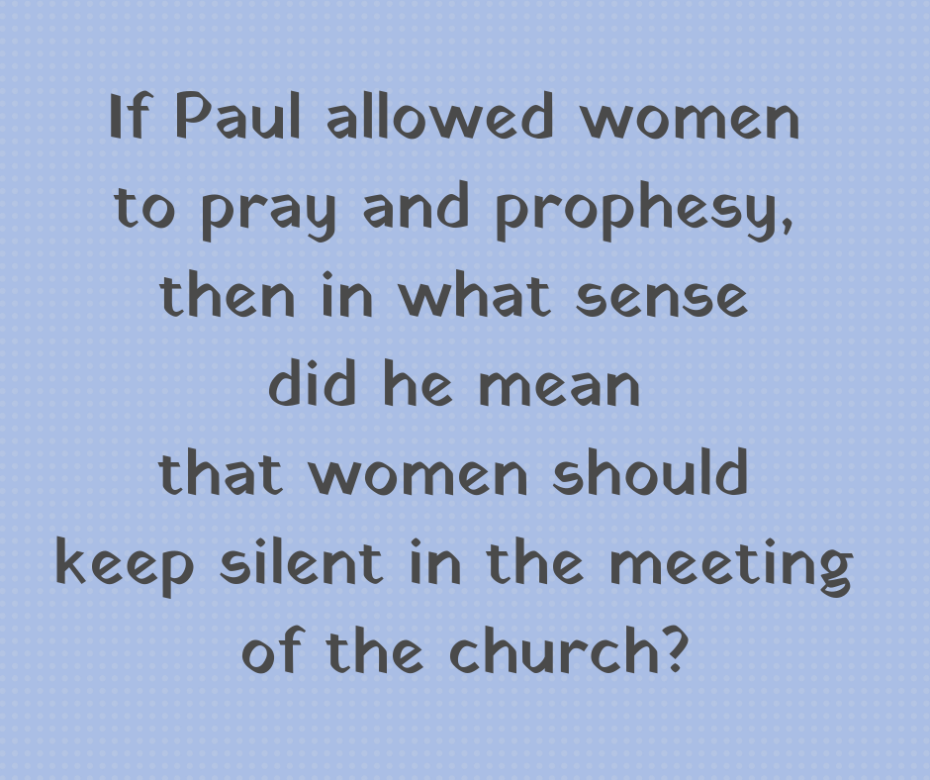Some authors point out that Paul’s prohibition against women speaking in church (1 Cor 14:34) must not mean exactly that, because earlier in 1 Corinthians (11:5) Paul had said that when women pray or prophesy, they should have their heads covered. Obviously, women can’t be silent if they are praying or prophesying.
Ben Witherington wrote (see here), “Paul has already said in 1 Cor. 11 that women are allowed to pray and prophesy in Christian worship if they wear head coverings to hide their ‘glory’ (i.e. hair), since only God’s glory should be visible in worship, and he is not reneging on that permission in 1 Cor. 14:33b-36.”
See also here at gotquestions.org.
(For an alternative view, limited silence, see here.)
Actually 1 Cor 11:5 does not include the words “in Christian worship” or anything remotely like that. Indeed, it is not until v 17 of 1 Corinthians 11 that Paul begins to discuss the Lord’s Supper meeting.
It is good that commentators recognize that Scripture does not contradict Scripture.
However, there is a much better explanation than the one which suggests that only certain types of speech by women were forbidden by Paul in church.
There are 168 hours in a week. Women in first century Corinth were in the meeting of the local church about two hours a week. That left 166 hours a week when women in that day could have prayed or prophesied.
Paul’s point is that when women pray or prophesy, they should have their heads covered.
The fact that women were to be silent in church does not mean that women were to be silent the rest of the week.
At our church, women pray at our Wednesday evening prayer meeting. Women who pray are wearing hats. If their head is not covered, then they do not pray. But women do not pray in our Lord’s Supper meeting. We believe that captures the teaching of both 1 Cor 11:5 and 14:34.
I do not believe that the prophetic gift is functioning now. I believe it ceased after the Apostles. Most likely that gift, and other sign gifts, will return during the Tribulation. But if the gift of prophecy were in effect today, then women could prophesy, but with two restrictions: first, only with their heads covered, and second, not in the meeting of the local church.


